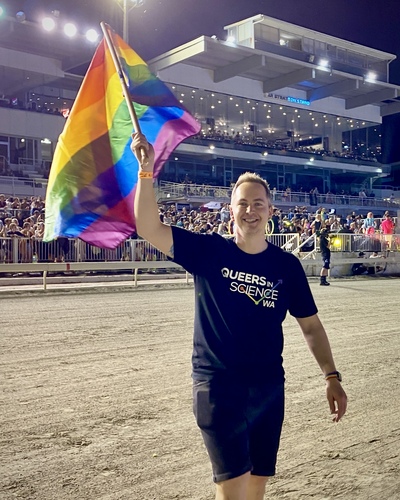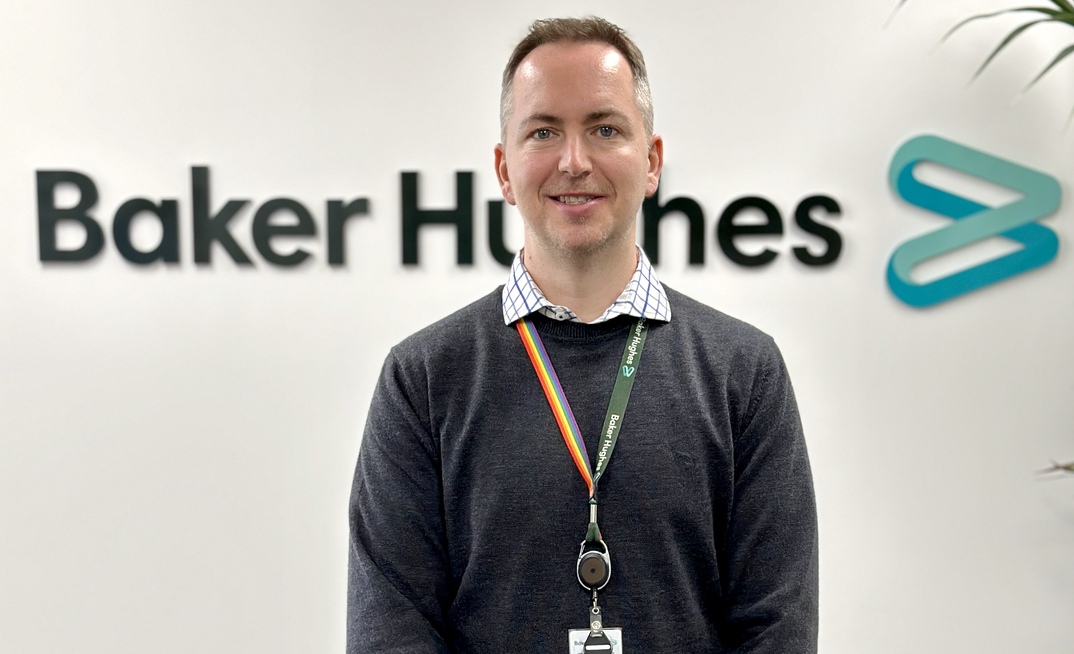In the unforgiving waters of the Indian Ocean, where Australia's offshore rigs rise like steel fortresses, Jeremy Campbell-Wray has navigated a challenge demanding both technical expertise and immense courage.
A seasoned professional at Baker Hughes with over two decades of experience, Campbell-Wray oversees operations in the Asia Pacific region, driving innovation in a sector known for its exacting demands.
Yet, it's his advocacy outside the operations team that truly sets him apart. As an openly gay man in an industry long resistant to change, Campbell-Wray has emerged as a pioneering advocate for diversity, equity, and inclusion.
Intimately familiar with the rigours of offshore life, where tradition weighs as heavily as the ocean's waves, Campbell-Wray leads the Diversity, Equity & Inclusion (DEI) Council for Australia, New Zealand, and Papua New Guinea. He oversees seven Employee Resource Groups (ERGs) and leads the Pride@Work ERG across Asia Pacific, with a mission to create a workplace where every individual is celebrated.
His journey to advocacy began in a remote and challenging environment—a lonely oil and gas platform off the rugged coast of WA. Amid the isolation and pressures of life at sea, Campbell-Wray made a decision that would change everything: he came out to his colleagues—that pivotal moment reshaped not only his identity but also the trajectory of his professional life.

I realised I didn't want to live in the closet anymore
This is what he recalls, describing the cautious process of revealing his true self in an environment dominated by "blokey" culture and blatant homophobia.
The experience was draining, both emotionally and psychologically.
"I kept having to cover who I really was," he says, describing the exhausting need to hide his identity. But his resolve strengthened over time. "I realised how much that impacted my focus on safety and well-being," he adds, highlighting the broader implications of exclusion in such a high-risk environment.
Beyond his role at Baker Hughes, Campbell-Wray has been pivotal in the not-for-profit sector, particularly through his leadership at Pride WA Inc. His efforts have helped the organisation gain financial stability and deliver impactful community events, solidifying his role as a champion for LGBTQ+ rights.
Despite progress, Campbell-Wray acknowledges the work that remains.
"There's still a long way to go," he says, pointing to ongoing challenges in the industry. Yet, his story is a beacon of hope, a testament to the transformative power of inclusion.
As the oil and gas industry evolves, Campbell-Wray's journey powerfully reminds us of the importance of visibility and advocacy in creating lasting change.
Next week, he will share his story at the Diversity & Inclusion Summit (D&I) in Perth, where he will speak more about his journey and the work he and others are doing to help those from diverse backgrounds.
For Campbell-Wray, the road to building an inclusive workplace has been long and challenging yet immensely rewarding.
"We've spent many years creating an inclusive culture," he reflects. "Hosting events, fostering conversations, and sometimes feeling like we were pushing uphill. But then, a story comes along that makes every effort worthwhile."
This month, as Australia celebrates Wear It Purple Day—a day supporting LGBTQ+ youth and raising awareness around mental health and suicide prevention—Campbell-Wray will highlight a story that unfolded over the past year.
A colleague he's known for over a decade approached him, saying, "Jeremy, because of everything we've done—because of the talks, the education sessions, the partnerships with community groups—I've realised I'm transgender. I want to begin my transition, but I wasn't sure if the workplace or the industry would accept me."
What followed was a meticulous and compassionate effort to support this colleague through their transition. "We worked closely with their manager, their team, and even their clients to ensure that when they came out, the environment was understanding and supportive. We held awareness sessions, educated those around them, and carefully prepared the workplace for what was to come," Campbell-Wray recalls.
A few weeks ago, during International Pride Month, that colleague transitioned publicly. "It was about eight or nine months of preparation," he says, "and just this morning, I checked in with them. They told me that, thanks to the groundwork we laid, it felt like a non-event. They felt safe, accepted, and able to be their true self at work. Hearing that—knowing that someone going through one of the biggest changes in their life felt comfortable and accepted—is one of the most rewarding things I've done in years."
As he prepares to share this story at the D&I Summit, his message is clear: inclusivity isn't just about policies or events. It's about creating an environment where everyone feels they can be their authentic self—where their biggest life changes can happen without fear or hesitation. In an industry often seen as resistant to change, Campbell-Wray's work is proof that progress, though slow, is possible.
As the oil and gas sector grapples with its future in an increasingly diverse world, voices like his offer a glimpse of what that future could—and should—look like.
























